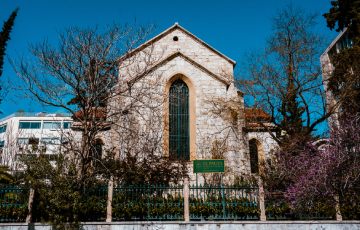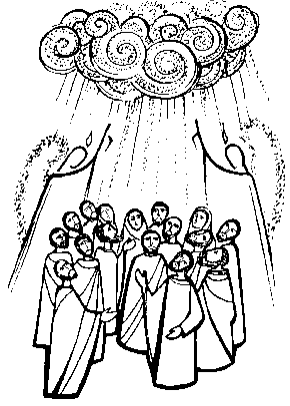REPORT ON PROCEEDINGS OF ST. PAUL’S COUNCIL MEETING HELD ON 21ST JANUARY, 2023
The meeting opened with prayer at 10.30 a.m. and the following matters were raised:
Finances: the deficit was 13,583 Euros, less than the 2020 amount of around 15,000 and a sign of post-Covid recovery. Accountant Philip Poulakis and Hon. Treasurer Nelly were thanked for their work and regular reporting.
Council membership: it was agreed that the one-year gap following a member’s end of tenure before he/she could re-apply for membership should be waived, in view of the current lack of people applying for Council membership.
Safeguarding: Safeguarding Officer Lynn Stavrou noted that any member of the congregation was welcome to complete the Level 1 Safeguarding course – available online – details from her.
Fundraising: the 2022 Christmas Bazaar had been a great success and the War Museum booked for 2023. Due to the closure of the British Embassy residence for up to 3 years for renovation, there would be no donations of food for the cafeteria. Both the Carol Sing-Along and Service had been well-attended, raising just over 1,400 Euros, and there had been a get-together at the Victory Café after the Christmas morning service. Oliver Knight reported income of 2,264 Euros from book sales in the previous 10 months – as well as book sales there would be a lending library for theological books and there was a demand for books from Newcomers, whose meetings Deacon Chris attended. Oliver added that more contributions were needed for the online Newsletter, particularly connected with church life. Concert bookings were slowly increasing and quiz evenings and coffee mornings continued to be profitable and enjoyable events. There would be a celebratory gathering in the garden on the day following the Coronation of King Charles III and souvenirs from the UK would be welcome (costs refundable if needed). The regular Radio Pepper concerts would continue and other bookings were coming in.
Any Other Business: the Bishop of Truro would be with us from 9th-13th March for meetings/discussions on his book on Christian persecution worldwide and he would receive, baptize and confirm members of the congregation;
Reader Sherry Angelis, a long-time member of our congregation, was now a resident of the Loida Home in Ekali.
Nelly Paraskevopoulou, our Reader in Training, would complete her course in summer. Best wishes for the success of his UK interviews re: training for Ordination were given to Angelos Palioudakis.
Discussions continued in the search for 2 Sunday School supervisors. Donations of plants for the garden were always welcome and Shirley Poulakis would again provide flower posies for Mothers’ Day.
Council’s second meeting with Diocesan Archdeacon Leslie Nathaniel would take place in February to continue the process of finding and appointing a Chaplain to serve at St. Paul’s following the retirement of Father Leonard at the end of July.
The meeting closed at 12.40.
Jean Mertzanakis (Hon. Secretary)







![Coronation 2023 Red-Blue [Small]](https://anglicanchurchathens.gr/wp-content/uploads/2014/06/Coronation-2023-Red-Blue-Small.png)